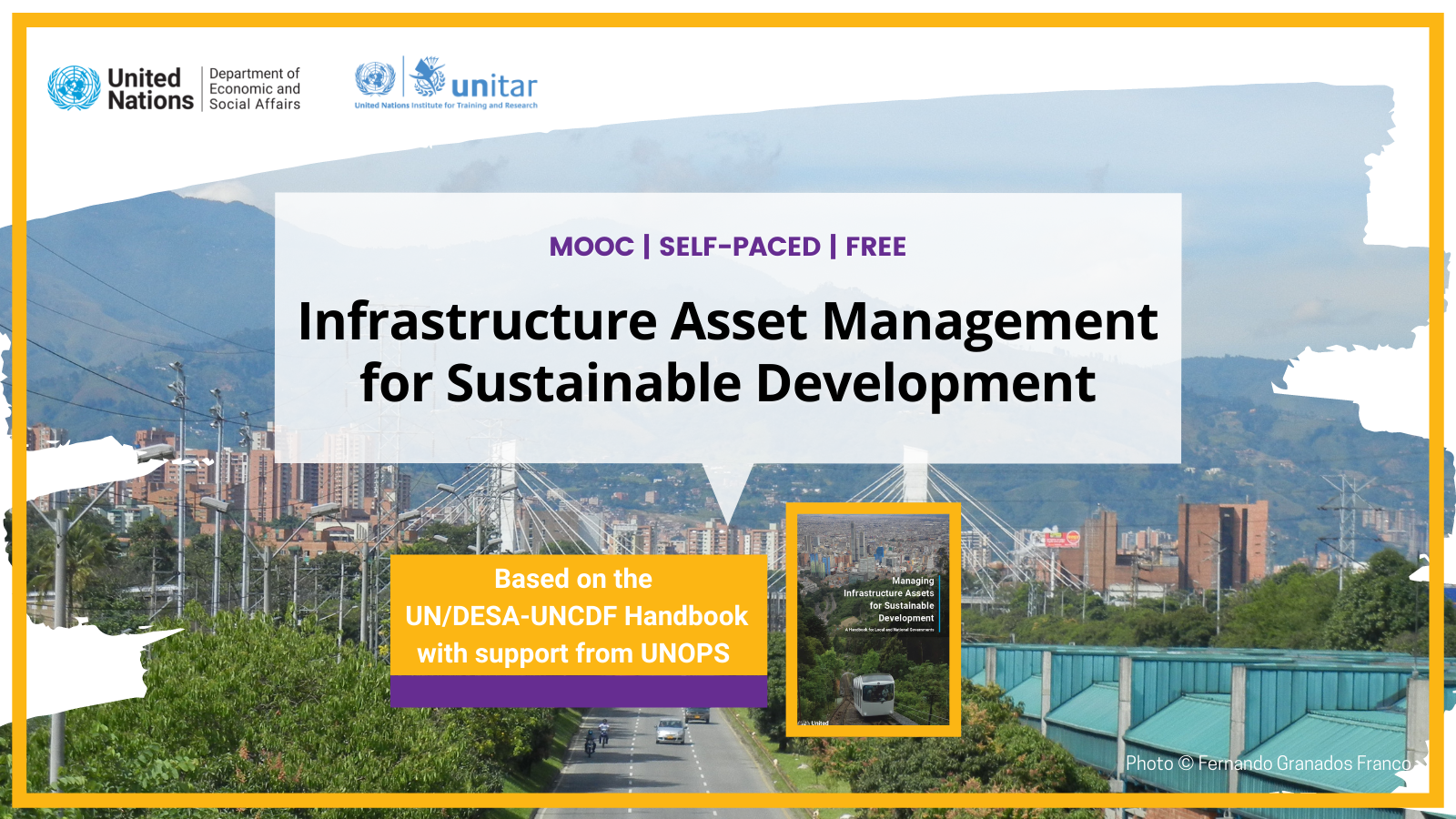We use a selection of our own and third-party cookies on the pages of this website: Essential cookies, which are required in order to use the website; functional cookies, which provide better easy of use when using the website; performance cookies, which we use to generate aggregated data on website use and statistics; and marketing cookies, which are used to display relevant content and advertising. If you choose "ACCEPT ALL", you consent to the use of all cookies. You can accept and reject individual cookie types and revoke your consent for the future at any time at "Settings".
This Massive Open Online Course (MOOC) is a self-paced course developed by the United Nations Department of Economic and Social Affairs (UN DESA), United Nations Institute for Training and Research (UNITAR) and the School of International and Public Affairs (SIPA) at Columbia University. The course is based on the UN publication “Managing Infrastructure Assets for Sustainable Development: A Handbook for Local and National Governments” – the result of a joint collaboration of UN DESA, UNCDF and UNOPS.
The Handbook includes inputs from renowned experts from regional development banks, local government associations, relevant UN system entities as well as think tanks and academia. The Handbook provides local and national governments with a set of practical tools to improve infrastructure asset management as well as guidance on how to adapt these tools to the socio-economic and environmental challenges of our time.
It addresses a set of key questions:
- What assets do people need?
- How can these assets be made to last the longest and perform the best?
- How can their potential to save or generate revenue be maximized so as to unlock financial resources for other community needs, now and in the future?
In the answers to these questions lies the key to ensuring the reliability of public infrastructure and services at all levels.


